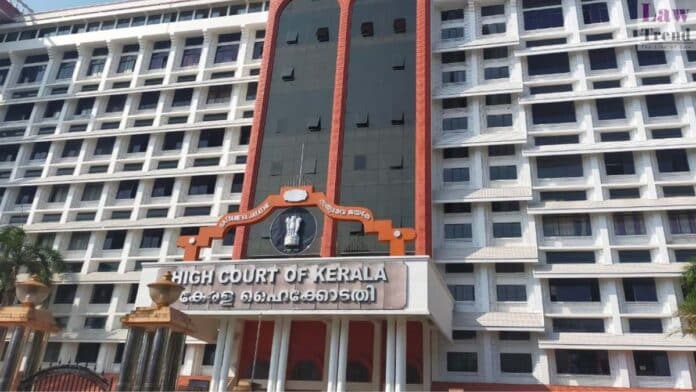The Kerala High Court on Thursday sentenced a man and his wife to life imprisonment for the murder of his six-year-old daughter, holding that their “brutal and sustained acts of cruelty” over several months directly caused the child’s death in 2013.
A division bench of Justices Raja Vijayaraghavan V and K V Jayakumar convicted Subramanian Namboodiri and Ramla Begum @ Devaki Antharjanam under Section 302 read with Section 34 of the Indian Penal Code, setting aside their 2016 acquittal by a sessions court. The High Court described the trial court’s earlier reasoning as “manifestly untenable, palpably erroneous, and based on a misapplication of the settled principles of criminal law.”
Relying on medical and witness evidence, including the statement of the victim’s brother, Adhithi S. Namboodiri, the bench found that the child had died “due to prolonged physical and mental torture, neglect and manual labour for about ten months.” The postmortem revealed blunt trauma to the back of the abdomen and flanks, leading to neurogenic shock, which was identified as the immediate cause of death.
“The totality of evidence unmistakably points to the existence of a shared intention and a concerted course of conduct resulting in the death of the child,” the court observed.
The bench recorded that the couple’s actions included severe beatings, pouring of boiling water on the child’s genitals, multiple fractures, and deliberate starvation. “The resulting physical and psychological trauma culminated in neurogenic shock which led to the girl’s death,” the court said.
The judges also noted that the testimony of the victim’s brother, Arun S. Namboodiri, along with the medical evidence, clearly exposed “the inhuman, sadistic, and demonic torture to which the young children were subjected.”
The High Court said the sessions judge had misread and ignored overwhelming medical and circumstantial evidence. “The sessions judge has misread and failed to appreciate the credible evidence let in by the prosecution and arrived at a perverse finding, which has resulted in grave failure of justice,” the bench said, adding that allowing the acquittal to stand “would result in grave miscarriage of justice.”
After hearing arguments on sentencing, the bench declined to impose the death penalty as sought by the prosecution, observing that there were no special reasons to warrant capital punishment. The court instead sentenced both convicts to imprisonment for life and imposed a fine of ₹2 lakh each.
While convicting them for the girl’s murder, the High Court upheld their acquittal on the charge of attempted murder of the victim’s brother, who had also been subjected to abuse but survived.
The case, which had shocked Kerala over a decade ago, now stands as a grim reminder of the court’s observation that “the brutal and sustained acts of cruelty over a long period inflicted upon a minor child aged six years cannot go unpunished.”




